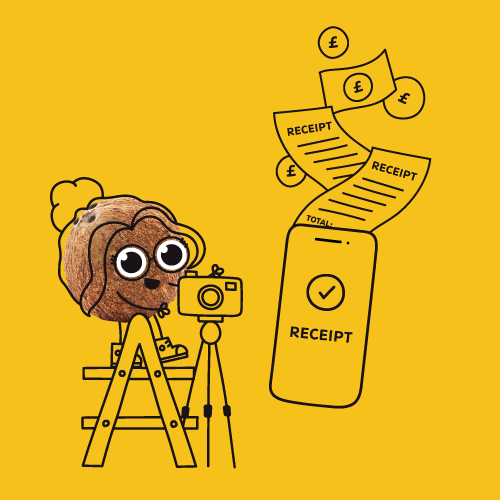Some sole traders and small private landlords don’t use an accountant. They take a “DIY approach” to bookkeeping and completing their tax returns. Software makes this possible and it enables them to save money.
But for an easier life and peace of mind, many other sole traders and small private landlords do use accountants. Choosing an accountant is a key decision. Find the right accountant and they’ll make your life easier, while helping you to maximise your income and minimise your tax bills. Make a bad choice and you’ll earn less income and end up frustrated at the poor service you receive. So, before choosing an accountant, what key factors should you consider?
1. Experience
You’re looking for a well-established accountant with years of experience of working for sole traders and landlords. If they’ve worked for sole traders in your sector, it can be hugely beneficial. They’ll be familiar with the unique challenges faced by sole traders in your sector, which should enable them to give you reliable practical advice. And although you’re likely to have to pay more for it, they or someone within their network should also be able to advise you on other important matters, such as growing your business or property portfolio, future investments, your pension, etc.
Top tip! Seek recommendations from other landlords or sole traders in your sector. Ask them which accountants they use and whether they would recommend them. Also find out how much they pay and what services they get in return.
2. Qualifications
An accountant should of course have the necessary professional training and membership of relevant professional bodies. In the UK and Ireland, leading chartered accountancy bodies include the Association of Chartered Certified Accountants (ACCA), Chartered Accountants Ireland (CAI), the Institute of Chartered Accountants in England and Wales (ICAEW) and the Institute of Chartered Accountants of Scotland (ICAS).
Top tip! Qualifications and memberships will only tell you so much. The right accountant will also understand you, be committed to working hard for you and want to build up a strong professional relationship with you.
3. Services
You also need to find an accountant who can offer the services you require, now and into the future. While basic services such as bookkeeping and tax returns are essential, you might also gain from tax planning and business advisory services. If you run a business and it grows, consider whether the accountant can help to enable your growth and support you as your needs change over time.
When weighing up your options, get prospective accountants to explain what specific services they offer. Also find out about their culture and approach to customer service. You should be sure that they will respond quickly and satisfactorily to your requests for support, not leave you waiting ages for a reply.
Top tip! Find out who your regular contact will be at prospective accountants and ask to meet them. This is the person with whom you’ll need to establish a good working relationship. Crucially, they need to be someone you can trust.
4. Reviews
Prospective accountants will probably tell you how wonderful they are and how much their existing clients love them. Their website might also contain glowing quotes from satisfied clients. But you need to do some of your own research. Look on social media and review platforms such as Trustpilot to see what clients are actually saying and what ratings they have given. You need to be able to trust your accountant, they need to demonstrate integrity and professionalism.
Top tip! Even the best accountants attract negative reviews – sometimes unfairly. As well as the glowing reviews, read the bad ones to see how the accountant has responded. It can reveal much about their customer service and explain bad reviews.
5. Value
Although, obviously, you’ll want to minimise your accountancy costs, going for the cheapest option can be unwise. Generally, you get what you pay for. You need to consider what value you will get, not necessarily what price you pay. An accountant who charges you slightly more might offer you greater quality. They could be much more reliable and give amore responsive, personalised service.
Top tip! Accountants either charge a fixed monthly fee for specific services or a set fee for a specific task (eg complete a tax return), possibly an hourly fee for other work. Make sure you understand what you’ll pay and what you’ll get for your hard-earned cash. Transparency is essential, there should be no hidden costs. And be sure to claim back all accountancy fees as an allowable tax expense.
6. Software
As a sole trader or landlord, you realise the importance of keeping accurate, up-to-date financial figures, so you’re happy to use accounting software. But you just need accounting software that’s quick and easy to use, gives you basic functionality and gives you access via your smartphone if you’re out and about. You want something that enables you to manage and minimise your expenses, something that saves you time, effort and costs when completing your Self Assessment tax return.
Top tip! Ask prospective accountants what software they’ll expect you to use. Also ask them how quick and easy their preferred client accounting software is. If it comes with complex and unnecessary “bells and whistles”, ask for something simpler.
And finally…
Leave yourself enough time when searching for an accountant. Rushing your decision can lead to mistakes. Seek recommendations from other sole traders or landlords. Make time for a brief face-to-face meeting with accountants, to get a better idea of who will be working for you.
Have conversations with a few shortlisted accountants before deciding. Be clear about how much you’ll pay and what services you’ll get. Speak to some of their other clients. Find out whether they think they’re getting good value for money. Choose an accountant that uses the right software for your practical needs, software that saves you time, effort, money and makes your life easier. Ultimately, you’re hiring an accountant for the same reasons.











